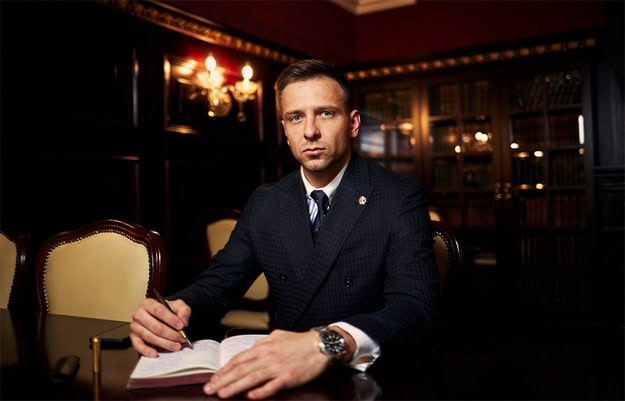
The entertainment industry is a dynamic and multifaceted landscape encompassing film, television, music, theater, gaming, and digital media. From contract negotiations and intellectual property protection to talent representation and dispute resolution, the entertainment industry presents a myriad of legal challenges and opportunities. Entertainment industry lawyers play a crucial role in guiding artists, producers, studios, and other stakeholders through the legal complexities of show business, ensuring compliance with laws and regulations, protecting rights and interests, and facilitating successful projects and collaborations. In this blog, we’ll delve into the essential services provided by entertainment industry lawyers and their invaluable contributions to the entertainment ecosystem.
Contract Negotiation and Drafting
One of the primary roles of entertainment industry lawyers is negotiating and drafting contracts that govern various aspects of creative projects and business transactions. Whether it’s negotiating actor contracts for film and television productions, recording contracts for musicians, or licensing agreements for digital content distribution, entertainment lawyers work to secure favorable terms and protect their clients’ rights and interests. They ensure that contracts are legally sound, accurately reflect the parties’ intentions, and address key issues such as compensation, intellectual property rights, creative control, and distribution rights.
Intellectual Property Protection
Intellectual property (IP) is the lifeblood of the entertainment industry, encompassing copyrights, trademarks, patents, and trade secrets that underpin creative works and brand identities. Entertainment industry lawyers specialize in IP law and help clients protect their intellectual property assets from infringement, misappropriation, and unauthorized use. They assist with copyright registration, trademark clearance and registration, licensing agreements, and enforcement of IP rights through litigation or alternative dispute resolution mechanisms. By safeguarding intellectual property, entertainment lawyers help creators and rights holders maximize the value of their creative works and brands in the marketplace.
Talent Representation and Management
Talent representation is a critical aspect of the entertainment industry, with agents, managers, and attorneys playing key roles in guiding the careers of artists, performers, writers, and other creative professionals. Entertainment lawyers often serve as talent representatives, negotiating deals, advising on career strategies, and advocating for their clients’ interests in negotiations with studios, networks, record labels, and other industry players. They help clients navigate complex contracts, secure opportunities, and protect their rights while advancing their careers and achieving their artistic and financial goals.
Compliance and Regulatory Matters
The entertainment industry is subject to a myriad of laws, regulations, and industry standards governing everything from content production and distribution to labor practices and consumer protection. Entertainment lawyers advise clients on compliance with applicable laws and regulations, including copyright and trademark laws, labor and employment laws, advertising regulations, and privacy laws. They help clients navigate legal and regulatory challenges, mitigate risks, and ensure that their activities comply with legal requirements while minimizing exposure to liability and legal disputes.
Dispute Resolution and Litigation
Despite best efforts to prevent conflicts, disputes can arise in the entertainment industry due to contractual breaches, copyright infringement, royalty disputes, defamation claims, and other issues. Entertainment industry lawyers specialize in dispute resolution and litigation, representing clients in negotiations, mediation, arbitration, and courtroom proceedings. They advocate for their clients’ interests, pursue legal remedies to resolve disputes, and protect their rights through litigation or settlement negotiations. Whether defending against legal claims or asserting rights under contract or IP law, entertainment lawyers work to achieve favorable outcomes for their clients while preserving professional relationships and reputations in the industry.
Tips to Choose the Best Entertainment Industry Lawyers
Reputation and References
Research the lawyer’s reputation within the entertainment industry and seek recommendations from colleagues, peers, or industry professionals who have worked with them in the past. A lawyer with a strong reputation for professionalism, integrity, and client satisfaction is more likely to provide high-quality legal services and deliver results.
Industry Connections
Choose a lawyer who has strong connections and relationships within the entertainment industry, including with talent agencies, production companies, studios, and industry associations. A lawyer with a robust network can leverage their connections to open doors, negotiate deals, and create opportunities for their clients.
Communication and Accessibility
Select a lawyer who communicates effectively and is accessible to their clients. Clear and transparent communication is essential for maintaining a positive attorney-client relationship and ensuring that you are kept informed throughout the legal process.
Personalized Approach
Look for a lawyer who takes a personalized approach to representing their clients and tailors their services to meet your specific needs and objectives. Choose a lawyer who takes the time to understand your goals and priorities and develops a customized legal strategy to achieve them.
Final Words
Entertainment industry lawyers play a vital role in navigating the legal complexities of show business and ensuring the success and sustainability of creative endeavors in film, television, music, theater, gaming, and digital media. From negotiating contracts and protecting intellectual property to representing talent and resolving disputes, entertainment lawyers provide essential legal services that underpin the operations of studios, production companies, talent agencies, and individual creators. As the entertainment industry continues to evolve and adapt to changing technologies and market dynamics, the expertise and advocacy of entertainment lawyers remain indispensable in safeguarding the rights and interests of clients and fostering a vibrant and thriving entertainment ecosystem.



